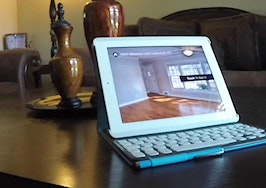- Simplify goals, and make gains in your productivity as a listing agent.
- There are three things needed for homes to sell: marketing, condition and price.
- Real estate, fortunately, isn't rocket science. So keep it simple, and don't get overwhelmed.
When you list a property, how do you get from point A to point B? Or better yet, how do you get from listing to close?
Do you stress over the roadblocks that can arise or look at the bigger picture? Here is a way to simplify your goals and make gains in your productivity from start to finish as a listing agent.
[Tweet “Simplify goals, and make gains in your productivity as a listing agent.”]
With all the little nuances that can take place in any real estate transaction, looking at the bigger picture from 30,000 feet instead of analyzing every minute detail head-on can better serve us to be more productive and efficient with our time and our clients’.
A prime example of this is working with homeowners in selling their properties. As many of us have experienced, there are tons of things that can go wrong in any transaction; however, if you can simplify what you’re ultimately trying to accomplish, you’ll realize that there are only three things needed for most homes to sell: marketing, condition and price.
[Tweet “There are three things needed for homes to sell: marketing, condition and price.”]
If you’re showcasing a client’s property appropriately online with: high-resolution photos, descriptive commentary, flexible showing times (whether private viewings or open houses) — and over a broad spectrum of channels — then you’re off to a great start with the marketing.
But what good does it do to showcase the home well online or off (through tangible marketing items) and set a buyer’s expectation for something grand if they’ll only be disappointed when they arrive due to the condition of the property? Is the home clean, updated, well-kept, and does it smell good?
Has the property been appropriately maintained and serviced mechanically throughout the current seller’s ownership? What about the various rooms throughout the house? Are you showcasing the space’s size with minimal furniture and the possibilities of what can be for the next owner?
If you are, then that only leaves price. Now, of course, you could be selling “as-is,” which is a whole different story but even with that said, it all leads back to value. What price does the home trade for per-square-foot in comparison to other similar homes nearby?
Maybe you’ve heard an owner say “my house is priced exactly as the other across the street and has upgrades, too, but we are still on the market while they aren’t. Why is that?” Well, in doing some digging and determining that the marketing and condition are there, thoroughly evaluate the price.
Yes, the home is offered at the same dollar amount as the other property that has sold, but usually not at (or even near) the same value as the comparable properties on a price-per-square-footage basis, which means we’ve figured out which of the three hasn’t been satisfied.
Although there are many little details we as professionals need to account for in any transaction, real estate, fortunately, isn’t rocket science.
[Tweet “Real estate, fortunately, isn’t rocket science — so keep it simple.”]
If you can view things from a simplistic perspective and help others to do so as well, you’re bound to make gains in your productivity and chances for success with each and every client.
Anthony West is a real estate agent, the founder of The Luxury Life KC atMoffitt Realty, and an entrepreneur in Kansas City.





